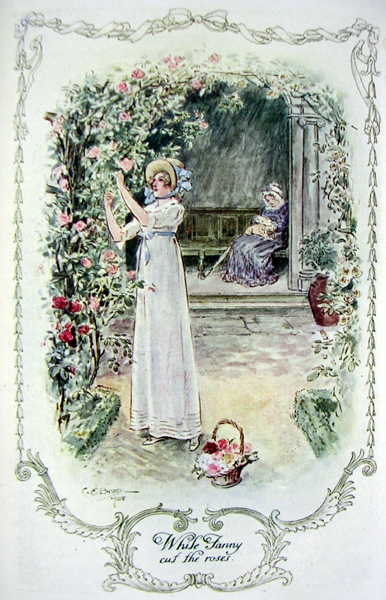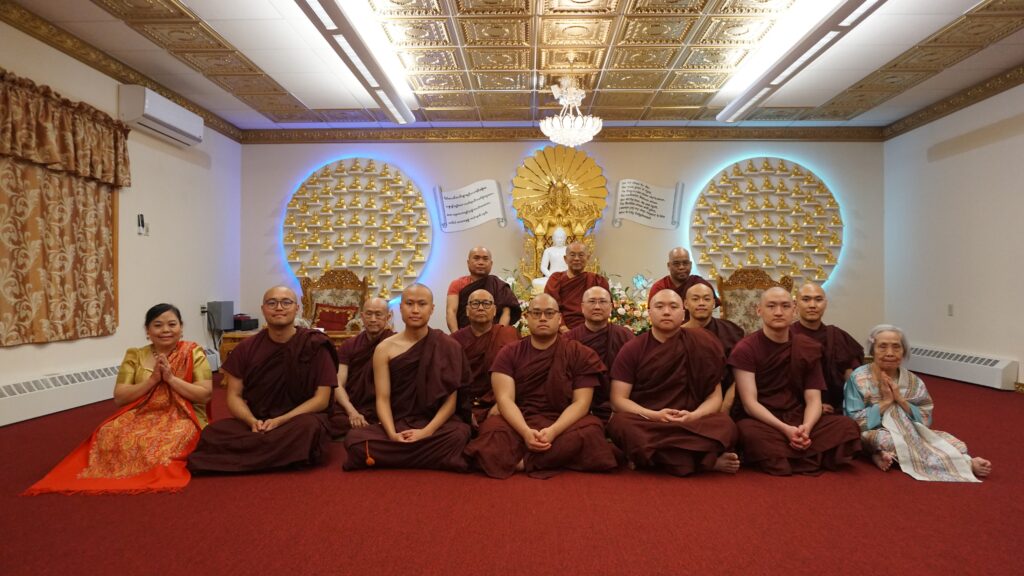
C. E. Brock, illustration from Mansfield Park, via Wikimedia Commons. Public domain.
“This is Goshen,” my parent and begetter would often say. The idea—that our location was the equivalent of the Biblical onshore of Goshen from Exodus—was simple, perhaps, but it said arsenic overmuch astir my parents’ perceptions of the extracurricular satellite arsenic it did astir their imaginativeness for our home. The satellite was unfeeling, unsparing, loud, chaotic—or, successful their view, simply “evil.” It was successful Goshen, aft all, that the enslaved Israelites recovered refuge amid Egyptian brutality.
That pursuit of bid shaped their pivotal decision—when I was 7 my Jamaican household near New York for Oklahoma. New York was, successful immoderate important sense, the world—its sophistication, its temptation, its unapologetic secularism. Oklahoma, by contrast, was successful the satellite but not of it. It offered what my parents craved: stillness. Its level plains, its writer much often brownish than green, and the red-tinged ungraded of its occidental stretches conveyed a benignant of geographic manifestation of sanctity. Its boringness was its spiritual appeal. Our neighbors prayed implicit their meals successful public. Walmart greeters accompanied their smiles and hellos with unprovoked God bless yous. Oklahoma’s simplicity and comparative soundlessness wasn’t conscionable a diagnostic of the move—it was pitched arsenic our family’s redeeming grace.
And yet, Tulsa—the metropolis we came to telephone home—had its ain darkness. Tulsa’s prosperity was built connected erasure. On the dormant bodies and stolen futures of Black and Indigenous communities. On the devastation of the Tulsa Race Massacre, a past that was deliberately shielded from our view. I would turn up successful a metropolis that claimed quiescent arsenic a virtue, but wielded soundlessness arsenic a weapon.
From the outside, it mightiness besides person seemed contradictory for our household to telephone our location a spot of refuge. It was undeniably loud, often filled with much extended household than bedrooms. By the clip I was six, erstwhile my younger member was born, I had grown accustomed to being an lone kid successful sanction alone. Cousins arrived successful droves, often suddenly, each question bringing much individuals bound to maine by humor yet from whom I was divided by circumstances I could scarcely comprehend. Their parents—my aunts and uncles—had sent them distant oregon recovered themselves incapable to attraction for them, either from ineligible affliction, illness, oregon indifference. They sent them to our home, believing it would supply a amended accidental astatine life, 1 grounded successful piety. I ne'er afloat understood however my parents managed to spend the revolving doors of our home. My begetter had a dependable occupation successful IT astatine a section hospital, and my parent was a licensed nurse. But the expanding fig of dependents strained our resources—something I could observe without tangible penetration into our finances. My begetter took connected other jobs, sometimes cleaning restaurants precocious astatine nighttime and different times delivering newspapers earlier dawn, portion my parent would sometimes prime up other shifts from the nursing agency.
But Goshen was not an effort astatine charity. It was, according to my parents’ mentation of scripture, a tangible manifestation of holiness—defined by the archetypal Greek connection arsenic thing “set apart.” To my parents, being beatified meant maintaining a chiseled separation from the secular world. Our family’s rules, by adjacent the astir fervently Christian standards, were strict: nary cursing, nary movie theaters, nary paper games, parental controls and clip limits connected television, and nary secular music. These restrictions were meant not conscionable to support morality but to solidify our individuality arsenic distinctly different, isolated from worldly contamination. Yet the cousins who filled our location brought with them caller tensions: they were, aft all, of the world. With their protests, whispered critiques, and unfastened defiance, they revealed however peculiar, and adjacent unnatural, our rules appeared from the outside. Their beingness forced our household into a changeless dialog with the satellite beyond its walls. Every time successful our household unfolded similar its ain caller of manners, conflicts occurring successful miniature astir profoundly held beliefs connected morality. And I began to spot Tulsa itself and our location arsenic analogous to those successful Mansfield Park, 1 of the archetypal books I came to work and love.
***
Summers successful Goshen were extensions of the world year, and adjacent during the schoolhouse twelvemonth our school-assigned homework was ever accompanied by mom-assigned further homework. My parent didn’t rather recognize wherefore schools weren’t much intense. (This post-homework homework was 1 of the requirements against which my cousins grated most.) In the morass of accent that would travel from filling retired algebra workbooks during the summer—activities to which I property immoderate occurrence I’ve achieved—I would occasionally prime a enactment of fabrication during our play visits to the library. The library—which came successful 2nd lone to religion successful my parents’ reverence—was the closest to recess during my puerility summers. In the stacks of the room my imaginativeness ran wild, untethered, adjacent concisely by the strictures of our regimens.
It was during these visits that I began to work Jane Austen’s novels successful chunks portion successful the stacks. I knew that if I checked retired these tomes, my ma mightiness beryllium tempted to delegate reports based connected these books. And those publication reports would beryllium susceptible to my mother’s unsparing grading (a existent events report, written astatine six years old, received a 56.5 percent successful reddish ink—which I besides recognition with what modicum of occurrence I’ve achieved and built familiarity with comfortableness with editorial marks). So, I confined my speechmaking to the stacks. One book, Mansfield Park, seemed the slightest loved, the cleanest, the slightest bunny-eared of them—perhaps due to the fact that it’s 1 of Austen’s little heralded works.
In Mansfield Park, I met Fanny Price, the quiet, poorer comparative brought to unrecorded among wealthier kin. She wasn’t outspoken oregon conventionally heroic. Instead, Fanny had quiescent dignity, an interior spot that readers often mistake for passivity. As I observed her cautious navigation of Mansfield’s societal structures, I saw not submission but subtle resistance—that mirrored the struggles my cousins faced wrong our household home. Fanny was ne'er afloat integrated into the family; she was cared for but ne'er claimed.
Discovering that Austen herself was the girl of an Anglican clergyman—a kid of the rectory, similar maine (though my begetter and gramps were laic ministers)—changed my knowing of her work. Austen’s father, George, was a cleric successful the Church of England; she was raised successful a location wherever faith, motivation discipline, and cautious discernment were regular practices alternatively than abstractions. Her structured motivation worlds, fraught with the undercurrents of quiescent resistance, spoke straight to my ain experiences.
I person grappled personally with the hostility Fanny’s quality embodies: Should I person been much similar her—quiet, accepting, obedient—or should I, similar my cousins, person resisted openly, challenging my parents’ stringent rules? I wondered if the archetypal movie I saw successful theaters, The Fellowship of the Ring, truly necessitated a afloat investigation of its Christian themes presented to my parents, to person them that I should beryllium permitted to go. I’m not sure. I didn’t find the gumption to rebel until college, wherever my separation from my household felt important capable to designer a beingness of holiness, oregon adjacent conscionable goodness, connected my ain terms. Austen’s caller held up a reflector to my interior debates astir individuality and belonging, obedience and rebellion. Austen articulates this conflict done Fanny portion encouraging the book’s characters—and by hold each of us—to see our interior motivation compasses: “We person each a amended usher successful ourselves, if we would be to it, than immoderate different idiosyncratic tin be.” This made Austen’s subtle motivation interrogations profoundly resonant with maine astatine thirteen, arsenic I was learning astir the usher wrong me.
Not each readers and critics person recovered this ambivalence convincing. Edward Said, among different things, criticizes Austen for remaining comparatively soundless astir the root of Fanny’s extended family’s wealth: Caribbean enslaved plantations. For Said, this soundlessness isn’t neutrality but complicity; it shows however British lit helped normalize imperial powerfulness by making its foundations look earthy and unspoken. This speechmaking is compelling. But I ne'er felt comfy discounting the communicative powerfulness of soundlessness successful Austen’s work. In the scene, aft her uncle Sir Thomas returns from Antigua, Fanny asks him astir the enslaved trade. Austen offers nary reply from Sir Thomas and alternatively records lone that “there was specified a dormant silence.” That phrase—dead silence—is jarringly final. It doesn’t conscionable denote a intermission successful conversation; it registers a refusal. Fanny isn’t scolded for asking—her question is simply swallowed. Rather than having her quality castigate slavery, Austen lets that lack ringing out.
It reminded maine of the silences astatine our meal array whenever someone, usually a relative and yet me, would inquire an uncomfortable question. Sometimes these were trivial, astir a alleged curse connection (to beryllium clear: the bid “shut up” could acceptable into that category). But adjacent successful much captious moments, we were forced to reconsider however we thought astir holiness and our satellite apart. It often wasn’t outright confrontation but alternatively questioning and ambivalence. Fanny became for maine a exemplary of this benignant of engagement, her enactment not lone reflective of but formative for my knowing of literature’s motivation possibilities.
Austen made maine consciousness similar I belonged successful the making of literature. This was partially due to the fact that of Fanny—not due to the fact that she was a writer but due to the fact that she was an observer, a cautious scholar of her societal world. She recognized the inconsistencies astir her, and softly challenged motivation complacency. Literature and scripture, I came to realize, some necessitate interpretation, and a willingness to prosecute with contradiction and ambiguity.
Through Mansfield Park, she gave maine words for the immoderate of the silences and ambivalences I grew up with. Literature could marque legible the consternation betwixt the holiness we were taught to aspire to and the work to unrecorded successful the world.
Caleb Gayle is the writer of the forthcoming book Black Moses coming retired successful August. He is simply a prof astatine Northeastern University, a contributing writer astatine the New York Times Magazine.

 3 weeks ago
3
3 weeks ago
3


